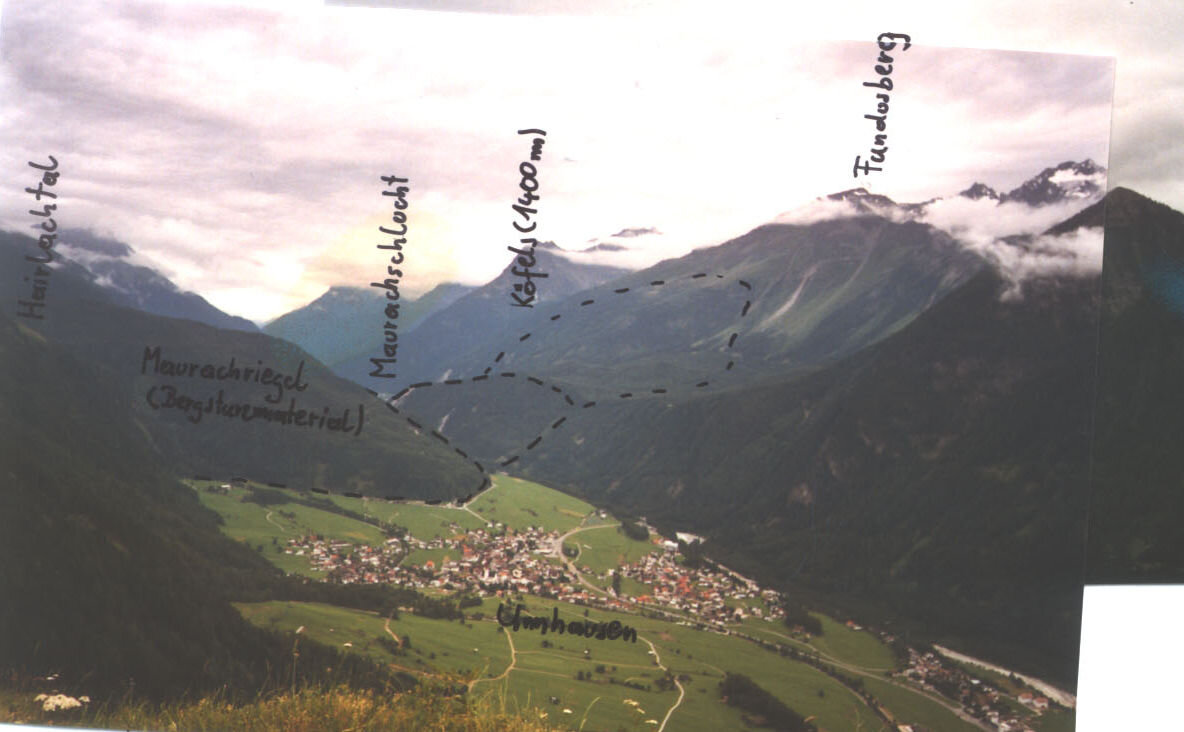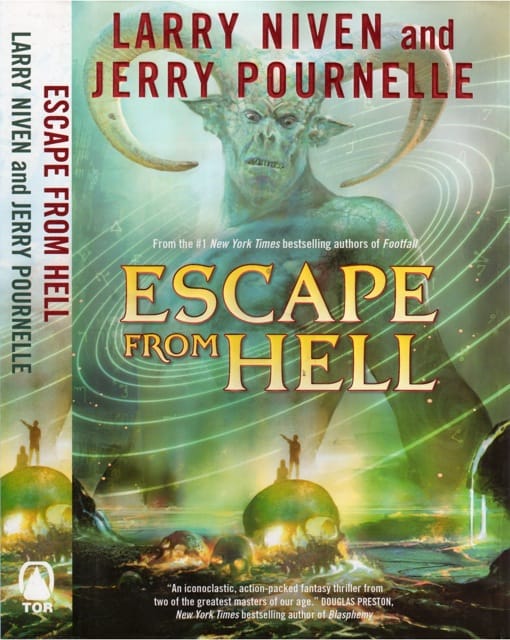The Long View 2008-04-08: Madonna's Casablanca; Cellphone Phobia; Liberal Fascism; Border Patrol; Trivial Asteroid Hit
It is not at all clear that the event described in the Sumerian tablet can be linked to a landslide in Austria, but John J. Reilly’s point about the apparent lack of other references to the impact event is interesting.

Madonna's Casablanca; Cellphone Phobia; Liberal Fascism; Border Patrol; Trivial Asteroid Hit
I suspect this proposal misses the point in several respects:
Madonna wants to remake Casablanca - and of all the places in all the world, she plans to set it in war-torn Iraq ...In the 1942 original, Bergman starred opposite Humphrey Bogart, who played Rick Blaine, a cynical bar owner in the Moroccan city of Casablanca in the early days of the Second World War. Ilsa is torn between love for her husband, a Czech Resistance leader, and her ex-lover Rick...The source said: "Madonna is talking about taking the Ingrid Bergman role for herself, even though Bergman was in her 20s when she played Ilsa and Madonna is nearly 50.
Casablanca was not set in a war zone, but in the antechamber to one. An analogous setting today would have to be in Syria or Kuwait. If a remake were set in Syria, the Baathist government could be the villains, but I rather doubt that is what Madonna has in mind.
When last was there a successful remake of a major film?
* * *
Cellphones probably don't cause brain cancer, but Popular Science is monitoring the growing phobia on the subject:
Every year or so, a new study claims evidence for a link between cellphone radiation and brain cancer. This week, the London Independent is reporting on a paper by Dr. Vini Khurana, a neurosurgeon trained in Australia and America. His conclusions place the public health consequences of mobile phone use on a scale greater than asbestos and smoking. The only catch is, he didn’t do any new research. His paper is based entirely on previous studies and (I’m not making this up) “Internet content.”
However annoying cellphones may be, one does not wish for the cancer-cellphone link to be verified. Nonetheless, it is hard not to imagine, with some satisfaction, the growth of anti-cellphone fascism on the model of anti-smoking fascism. Even now I can hear a needle-like screech of self-righteous outrage from a diner at a restaurant who spots someone else making a call from a neighboring table. The caller's brain is his own business, maybe, but what about second-hand radiation? And there will be little groups of callers shivering in the winter cold outside their places of work when they use their coffeebreaks to make a call.
Cellphone use will disappear from popular entertainment, except to mark evil or dangerous characters. In the future we will marvel at the turn-of-the-century entertainment in which everyone seemed to have a cellphone. Movies in which underage persons make cellphone calls will be banned or given very restrictive age-ratings.
And the lawsuits... But don't get me started.
* * *
I was looking at Hugh Hewitt's site, when I saw this recruiting ad for the U.S. Customs and Border Protection Service. I followed the link to the website; there I saw agents in their baseball caps and motorcycle helmets. I think one agent was wearing a bulletproof vest. I remark on this because it was recently explained to me, by someone whom I have no intention of allowing to live down the discussion, that it is physically impossible to secure the borders of the United States; at least not without the routine use of deadly force, which would be politically impossible. As evidence of the impossibility, I was told about the deaths of eight border agents in the Southwest in the last 12 months. They had been shot by coyotes who objected to the agents' attempts to interfere with the transport of illegal immigrants across the Mexican border.
I cannot say that I am very knowledgeable about the Border Patrol. Nonetheless, it seems to me that, if the patrol is ineffective and taking casualties, that may have less to do with their mission than with the nature of their training and equipment. Baseball caps? Why aren't these people in body armor? And yes, I know I would not wish body armor on my worst enemy, but how about helmets at least? The people who manage the patrol need to understand that they are now running a border guard, not patrolling a national park.
And yes, you can do that without turning into the East German Interior Ministry.
* * *
I cannot say that I have read the book of the season, Jonah Goldberg's Liberal Fascism. The thesis sounds unexceptionable, though. Goldberg apparently argues that Fascism shares many points of agreement with New Deal, Keynsian Liberalism in the United States and Britain. The term "liberal fascism" was coined by H.G. Wells during the Great Depression, to express what he thought the world needed.
Here is Goldberg defending himself from his critics, who seem determined to misunderstand what he said. He notes, among other valid points, that you can create great clouds of obfuscation by neglecting to distinguish John Stuart Mill's use of the term "liberal" from John Dewey's. Again, the parallels are real: Hitler's goal of economic autarky was not so different from FDR's protectionism. Nazi eugenics actually began as the imitation of a policy advocated by Progressives in America. Albert Speer's buildings are not always readily distinguishable from the Assyrian Moderne public buildings favored by the New Deal.
But may I suggest that the harmonies here go deeper than politics? The regimes in the US, Germany, and Russia in the 1930s have recognizable similarities not because they were in secret sympathy, but because they were contemporaries. The same mark of the period can be found in every expression of culture. Stalin's idea for collective farms, remember, came from the development of huge corporate farms in the US during the 1920s. The Age of Fascism was also the Age of the Vertically Integrated Corporation. In Aldous Huxley's Brave New World, remember, the founder of the world system is not Lenin, but Henry Ford. The age strove for hierarchy and what the Germans called Gleichschaltung, coordination, in every area of life, from religion to publishing to fashion to labor. Private associations were particularly keen on these things; this was one of the great ages of joiners. To the extent that governments assumed greater powers, they were reflecting popular sentiment rather than creating it.
What was happening here? I suspect that what we saw in the first half of the 20th century was a decline in the faith in providence. Progress was more believed in than ever, but progress was no longer something that God or "the world" produced, through the natural functioning of evolution or of the Invisible Hand. Progress had become Art, an act of will. Nietzsche did not cause this shift in understanding, but he correctly intuited an important mutation in the mind of the West. The presumption everywhere became that nothing was going to improve unless someone made it improve.
Later, Will became displaced by Management, but that's another story.
* * *
Still worried about asteroids? Well, you may find this account of an asteroid strike in very early historical time encouraging:
A cuneiform clay tablet that has puzzled scholars for over 150 years has been translated for the first time. The tablet is now known to be a contemporary Sumerian observation of an asteroid impact at Köfels, Austria and is published in a new book, 'A Sumerian Observation of the Köfels' Impact Event.'...The observation ...before dawn on the 29 June 3123 BC (Julian calendar). ... suggests the asteroid is over a kilometre in diameter...The in coming angle was very low (six degrees) and means the asteroid clipped a mountain called Gamskogel above the town of Längenfeld...Mark Hempsell [said] "Another conclusion can be made from the trajectory. The back plume from the explosion (the mushroom cloud) would be bent over the Mediterranean Sea re-entering the atmosphere over the Levant, Sinai, and Northern Egypt..."The ground heating though very short would be enough to ignite any flammable material - including human hair and clothes. It is probable more people died under the plume than in the Alps due to the impact blast."
If you can drop a kilometer-long asteroid so close to the centers of nascent civilization without the event showing up in history or even legend, then maybe we have overestimated the importance of these events.
A question: are all pre-16th century dates in the Julian reckoning, even if the dates are very long before the adoption of any Christian calendar? You need not go back far before Julian dates will be misleading about the seasons.
Copyright © 2008 by John J. Reilly



Comments ()